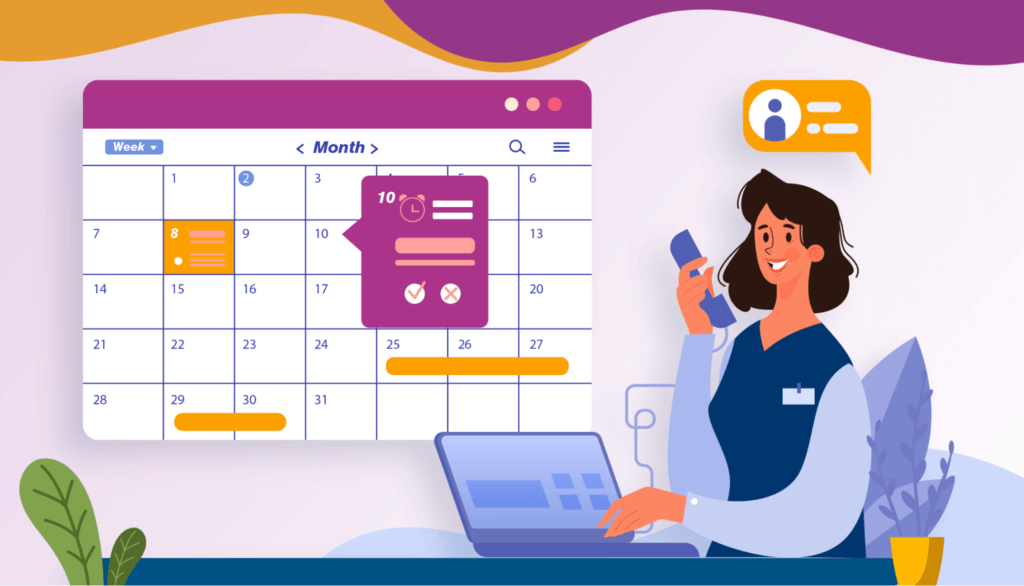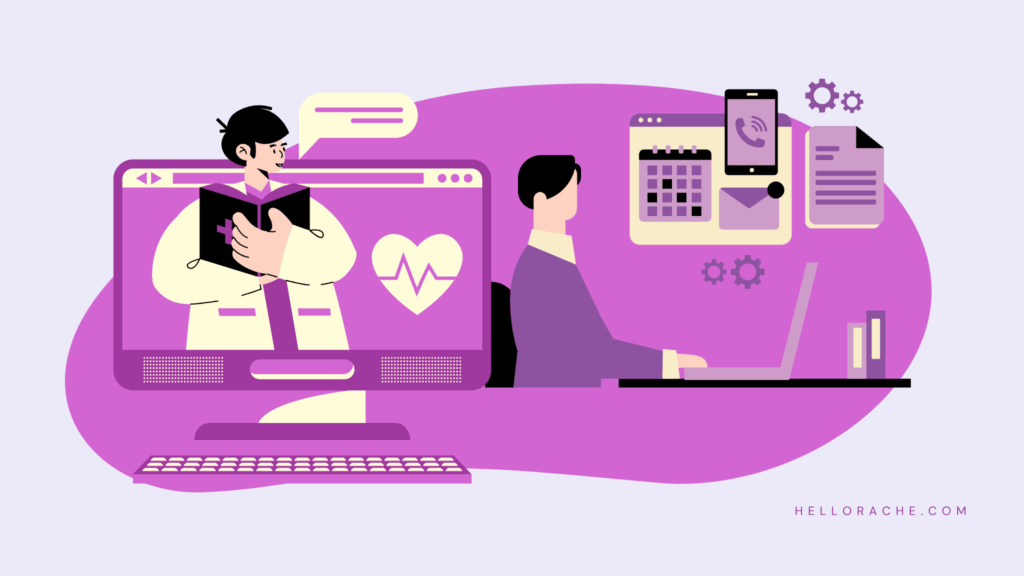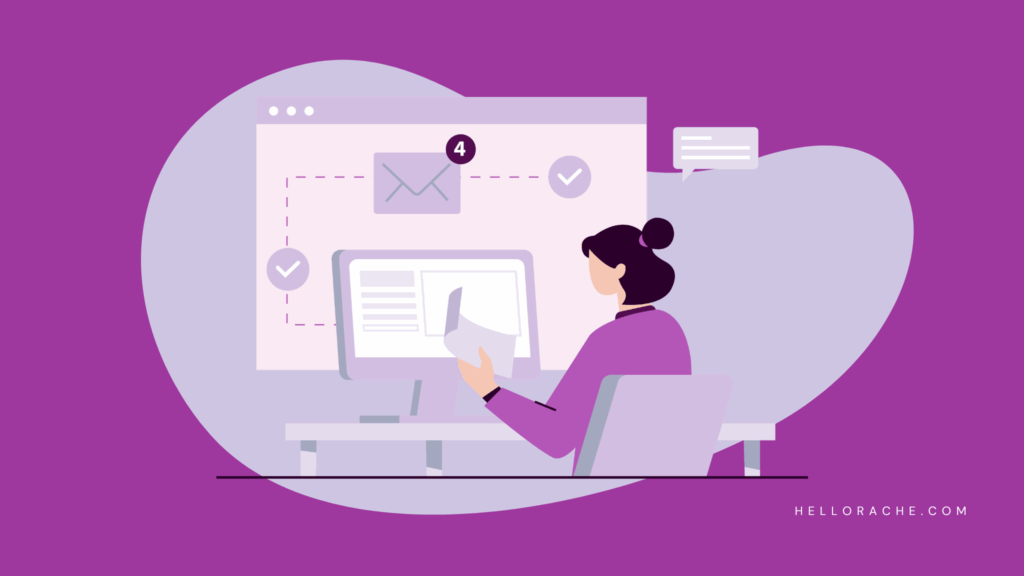Are you in need of a receptionist to handle all your administrative tasks, such as appointment scheduling and customer service?
Then an appointment receptionist might be the ideal solution.
From having more time to spend with your patients to creating a happier, more productive workforce, the benefits of having an appointment receptionist are many.
This article will delve into what an appointment receptionist does, how hiring one will benefit your business, and will explore the hiring options available so that you can decide if this is the right fit for you.
What is an appointment receptionist?
Appointment receptionists are individuals who take on an office or administrative support role. They’re responsible for helping offices with various administrative tasks, including greeting customers, answering telephone calls, and scheduling appointments.
Receptionists work in various industries, including healthcare, hospitality, and corporate.
On average, there have been 142,300 job openings in the U.S. for receptionists per year over the last decade. This means that many companies continue to hire receptionists every year.
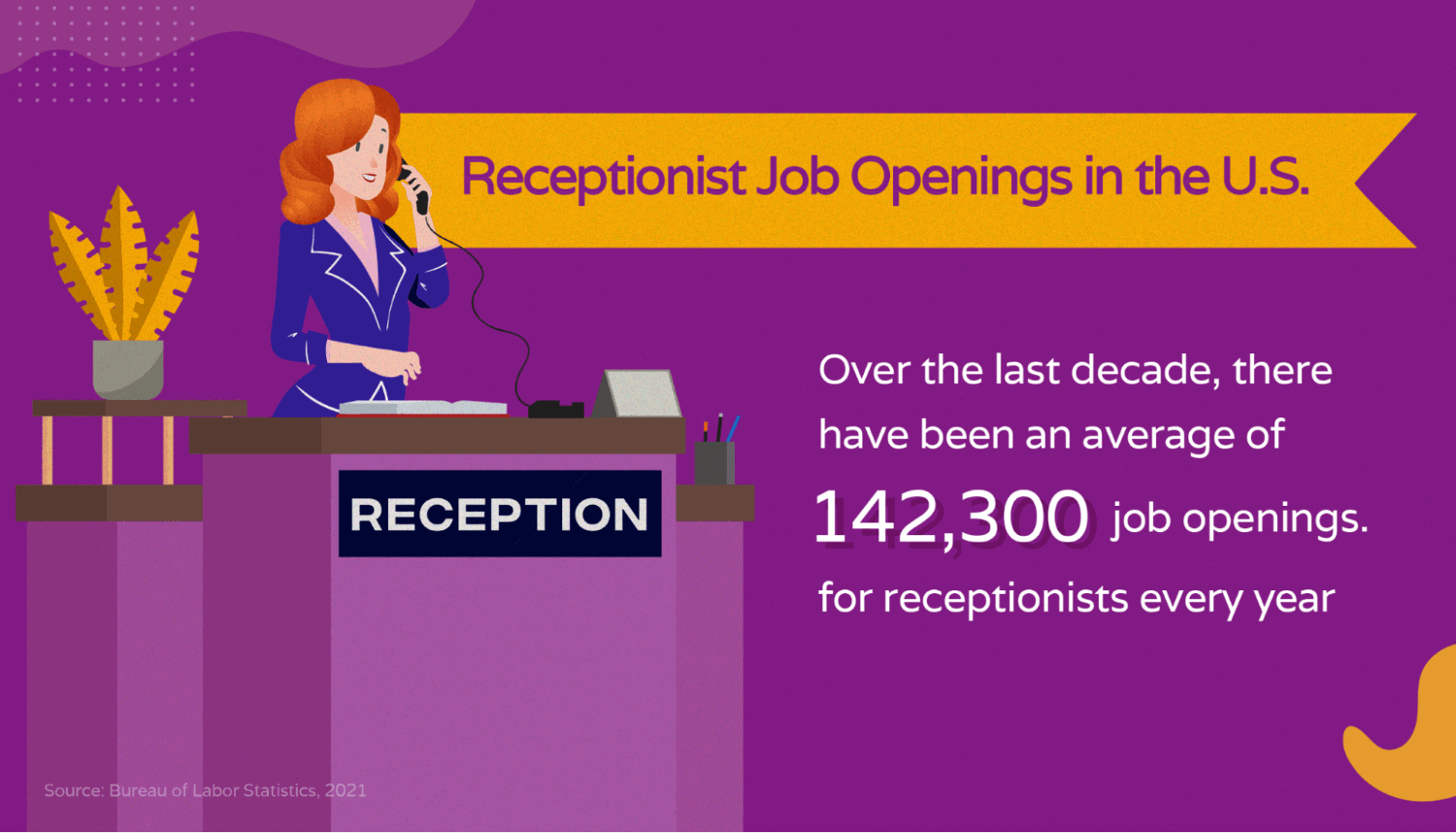
Employers usually require receptionists to have a minimum of a high school diploma, GED, or equivalent. Depending on the industry they work in, they may also require additional training or knowledge of the field. For example, healthcare receptionists may need HIPAA training.
Receptionists in today’s hybrid world can be in-person or virtual. Hello Rache’s virtual receptionists have HIPAA training. Learn more about how you can hire a virtual receptionist here.
In-house receptionist vs virtual receptionist
In recent years, many companies have started employing virtual workers. These are employees who offer many of the same services as traditional workers, but they work remotely. Virtual workers include virtual receptionists.
While traditional receptionists are expected to work in the office (a physical address), a virtual receptionist works virtually — usually from their home office.
Since virtual receptionists don’t have the added cost of transportation, a dedicated area and parking space at your medical office, or additional employee benefits, they’re far more cost-effective than traditional receptionists.
Duties of an appointment receptionist
Here are some of the main tasks that receptionists perform.
1. Schedule appointments
Receptionists are responsible for scheduling, rescheduling, and confirming appointments. They make the process as seamless as possible for clients and staff members. Receptionist scheduling involves:
- Scheduling appointments: Receptionists schedule appointments over the phone and or online. Additionally, they may schedule meetings and conferences.
- Sending appointment reminders: In addition to scheduling, receptionists provide appointment reminders. These can be in the form of text messages, emails, or quick calls.
- Doing follow-ups: Receptionists follow up with clients after their appointments to make sure they have everything they need. For this, they need to have knowledge of the appointment so they can offer solutions if a problem arises.
2. Answer calls and emails
Receptionists are usually the first point of contact for clients. They take incoming calls, make outbound phone calls, and answer emails. This work may involve:
- Handling client complaints: Receptionists listen to client concerns and handle these issues to the best of their ability while maintaining a positive attitude.
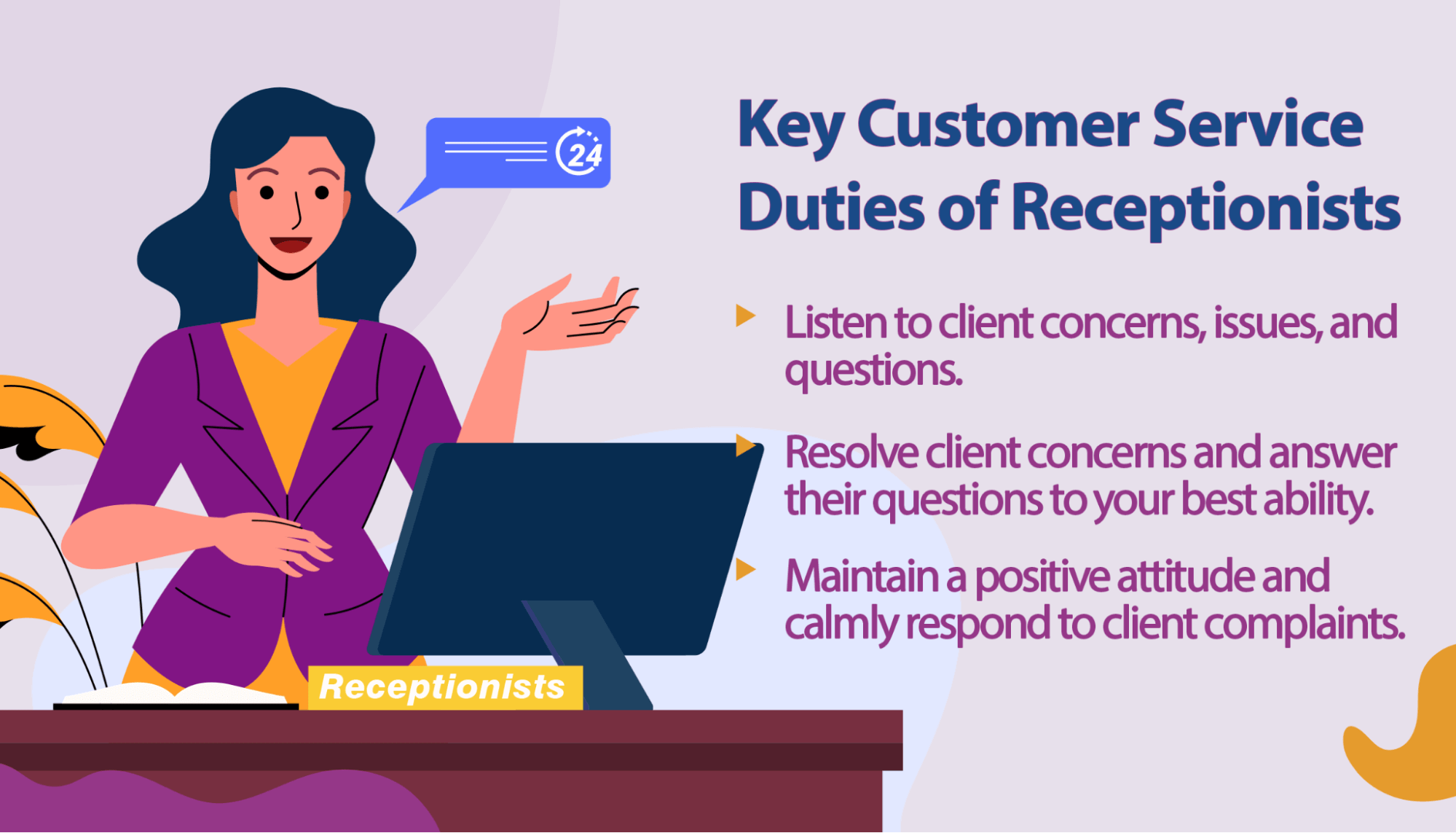
- Taking messages: When callers leave messages, the receptionist brings them to the appropriate staff member.
- Answering questions: Receptionists also need to handle basic queries, such as questions about the office’s business hours and the types of services it offers.
3. Handle general office duties
Receptionists handle administrative and office duties. These include filing, printing, and updating patient files. They also make sure the office doesn’t run out of supplies by ordering stock from suppliers when necessary.
Benefits of having a receptionist
Here are some of the main benefits of having a receptionist:
1. Fewer administrative duties
The medical industry has a high receptionist employment level.
According to the Bureau of Labor Statistics, physician offices employ around 183,000 receptionists, dental offices hire close to 89,000, and the offices of other health practitioners hire close to 63,500.
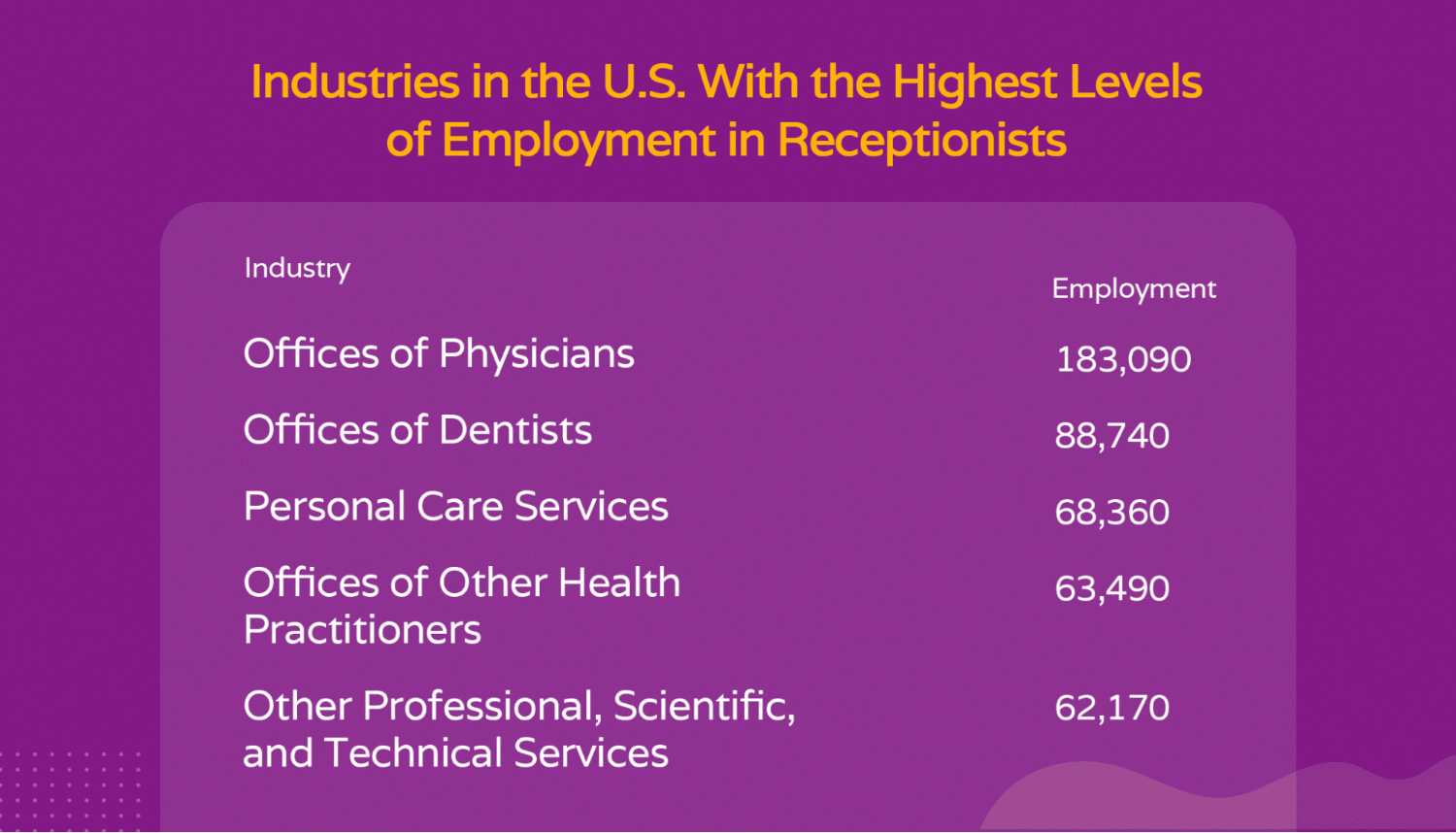
In the healthcare industry, this role is in high-demand because of the many administrative tasks required. Physicians and other patient-focused employees lack the time for such tasks and a receptionist can easily complete them.
2. Higher productivity
Hiring a receptionist saves time and money. With the burden of basic administrative tasks lifted, you and your other staff members will have more time to:
- Provide quality patient care.
- Focus on skill-specific tasks
This will help lead to higher productivity and a happier, less-stressed workforce. As a result, your company culture and environment will improve.
3. Better customer service
With a receptionist there to answer client questions, help them with bookings, and solve other issues, your practice will deliver better customer service.
Your clients may even recommend your practice to their family members and friends — resulting in more clients for you.
What can you expect to pay a receptionist?
The average salary for a receptionist is $14.40 per hour or $29,950 per year. However, this salary can increase significantly, depending on the receptionist’s location, expertise, and skills.
Location
Receptionists located in Washington, Oregon, California, Colorado, New York, Vermont, Massachusetts, and Alaska can earn anywhere from 5%–14% more than average.
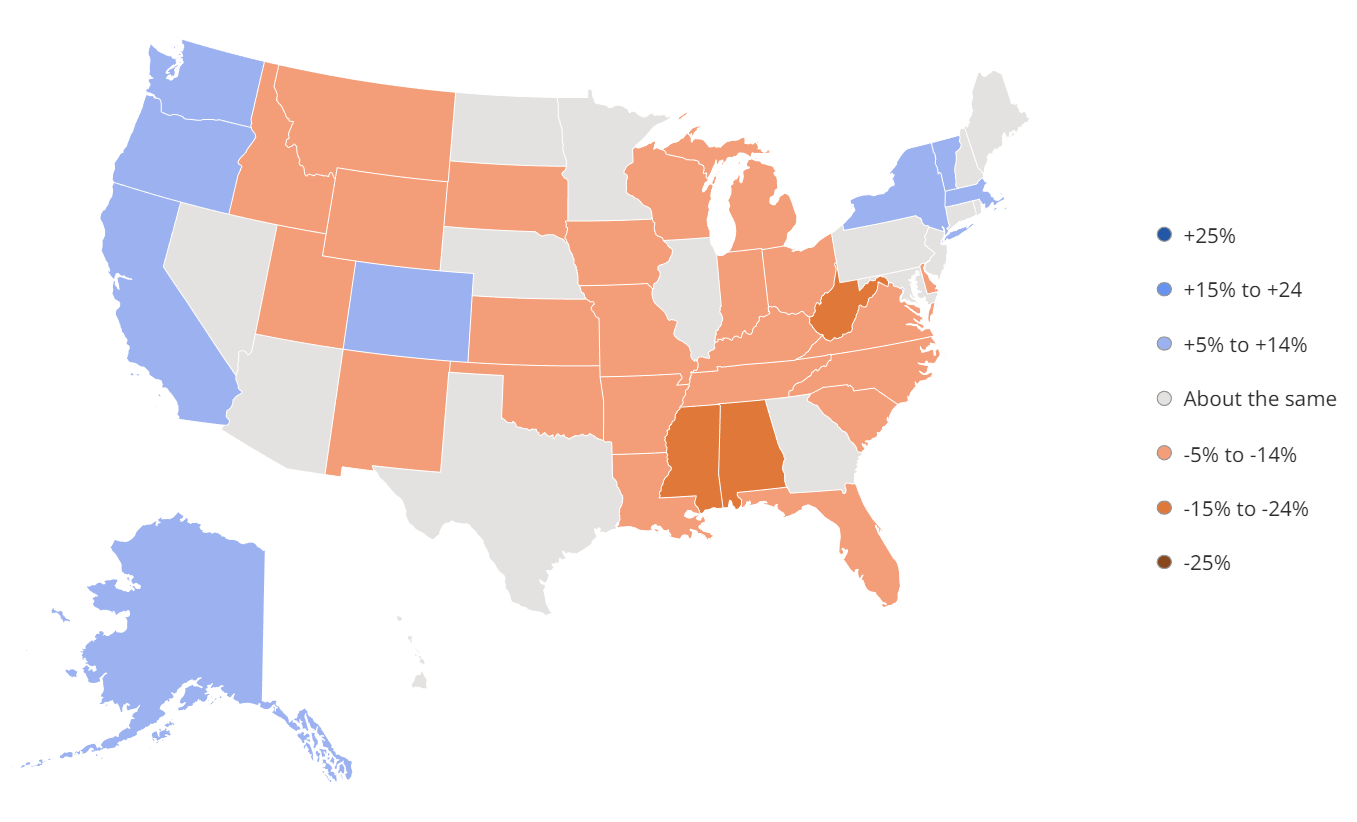
Experience
Receptionists with more than 10 years of experience can earn close to $4 more per hour than those with less than a year’s experience. Typically, the higher their experience level, the higher their wage.
Skills
Receptionists with the following skills can earn more than those without them:
- Purchasing: 23% more than average
- Accounting: 14% more than average
- Human resources: 14% more than average
- Medical coding: 13% more than average
- Negotiation: 9% more than average
- Claim handling: 8% more than average
Virtual receptionist pricing
At Hello Rache, you can hire a virtual receptionist for a flat fee of $9.50 per hour. By doing this, you’ll be saving nearly $5 per hour or around $800 per month (if your receptionist works typical full-time hours).
Learn more about how much virtual receptionists cost by heading over to our complete guide to virtual receptionist pricing.
Skills to look for when hiring a receptionist for your practice
Here are some of the top skills you should look for when hiring a receptionist:
Typing skills
Receptionists are required to type. They access and update patient documents, communicate via email, book appointments, and make notes. As such, they need to have fast typing skills.
The regular typing speed is 40 words per minute (wpm). Your receptionist should be able to type faster — ideally at a speed of 65–70 wpm.
Computer skills
As your practice grows, technology can help it become more efficient. Therefore, it’s important to hire a receptionist with up-to-date computer and technical skills.
These include knowing how to use spreadsheets, databases, email programs, and social media platforms.
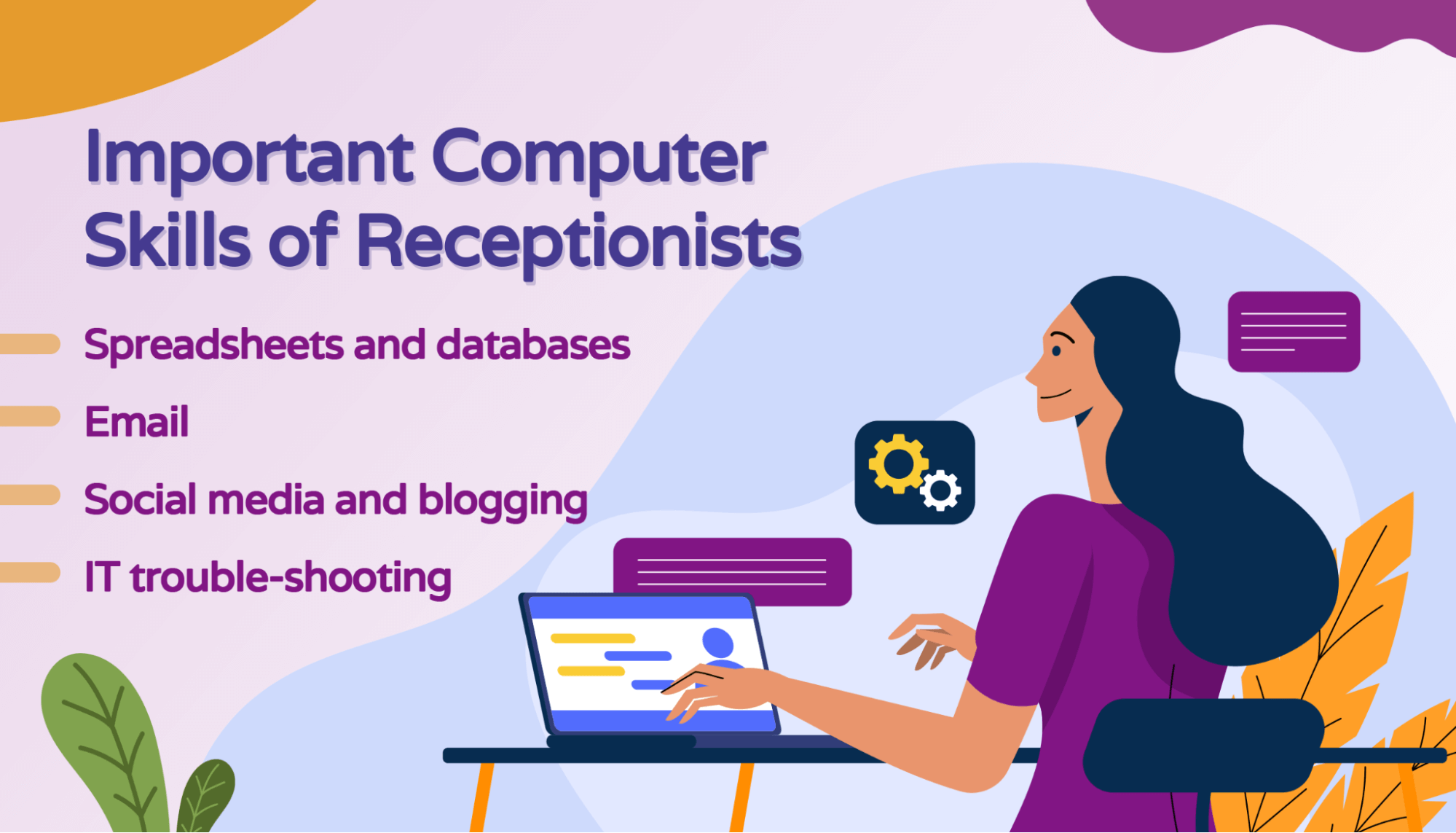
Your receptionist will also need to be a fast learner since they’ll have to learn how to use the software that your practice prefers.
Multitasking
Receptionists often have to perform multiple duties at the same time. For instance, they may be on the phone with a client when another line rings or an urgent email comes through from an employee who needs a response as soon as possible.
As a result, they’ll have to be able to stay calm under pressure and handle various situations professionally.
Communication and listening skills
It’s important for your receptionist to have great communication and listening skills.
- Communication skills: They’ll have to communicate with clients, staff members, and suppliers daily — both verbally and non-verbally.
- Listening skills: They’ll need to be able to take instructions from you, your employees, and your clients.
Hire a receptionist today
Hiring a receptionist will help relieve some of the stress that you and your staff may be experiencing. Whether you choose to hire an office-based or virtual receptionist is completely up to you.
If you’re looking for someone to greet patients at the door and perform administrative duties, an in-office receptionist is a great option. Unfortunately, they come at a steep price.
On the other hand, if you’re simply looking for someone to handle all the mundane tasks that you and your staff don’t have time for, a virtual receptionist is ideal — and much more cost-effective!
Interested in hiring a virtual receptionist? Learn how you can easily find a virtual receptionist for your business.
Discover what Hello Rache can do for you and your practice
Tell us a little about your practice & we will contact you within 24 hours.

